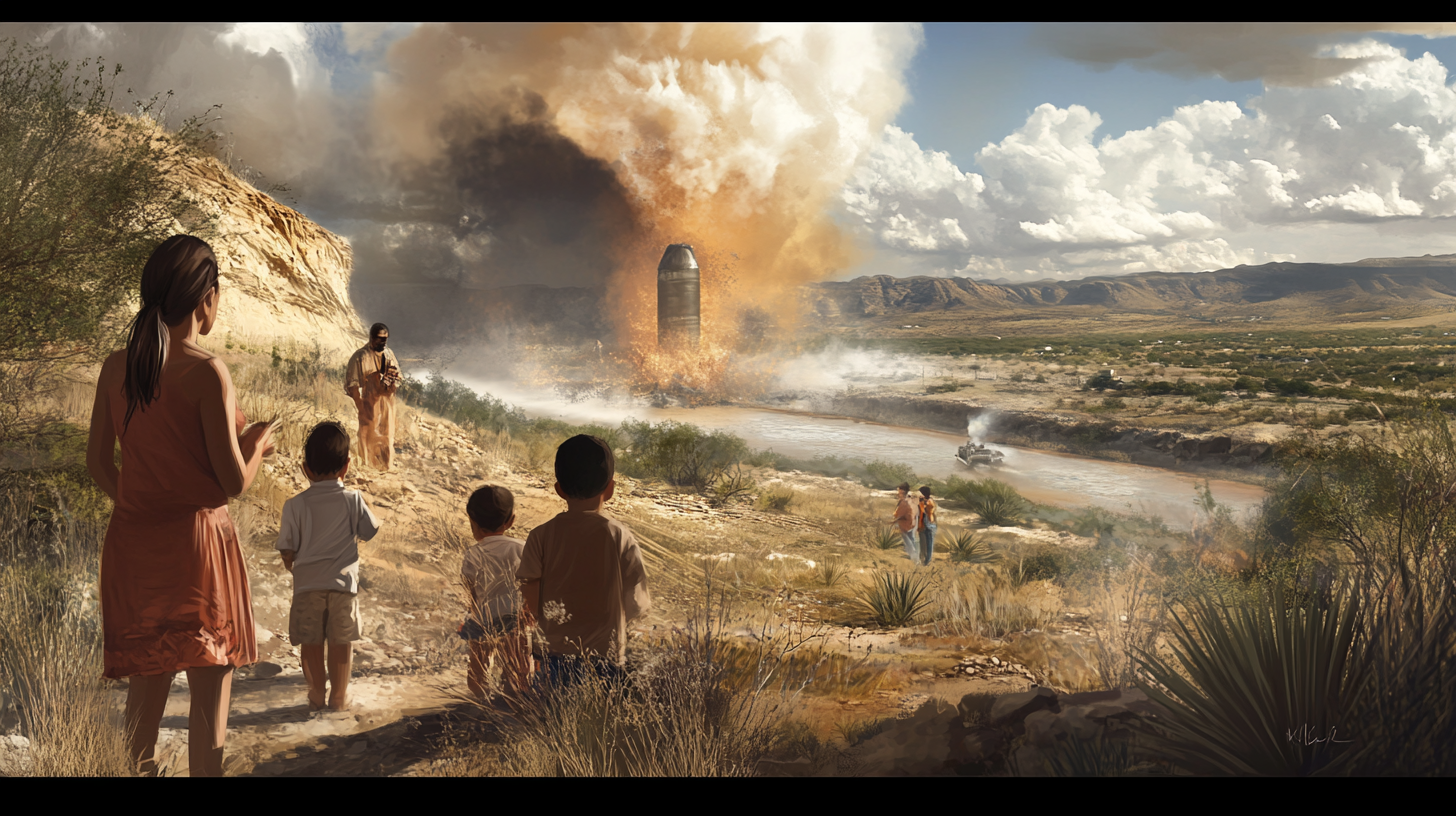Rancher’s Death Sparks Concern Over Cartel Activity Near RGV
In a harrowing incident that has sent shockwaves through the Rio Grande Valley and beyond, Antonio Céspedes Saldierna, a respected rancher from Brownsville, Texas, was killed after driving over an explosive device on his ranch in Tamaulipas, Mexico. This tragedy has heightened the community’s awareness of the increasing dangers posed by cartel activities near the U.S.-Mexico border.
The Incident
Antonio Céspedes Saldierna, known for his devotion to his family and his ranch, died in late January when the truck he was driving exploded after running over an improvised explosive device (IED). The tragedy did not end there; Horacio Lopez Pena, a long-time friend, also lost his life, and Pena’s wife, Ninfa Griselda Ortega, sustained injuries from the blast.
This wasn’t a random occurrence. The government of Tamaulipas has warned residents about explosive devices along rural roads, attributing these threats to organized crime factions attempting to assert control over territories.
Ramiro Céspedes, Antonio’s son and a U.S. Army veteran, is grappling with the loss. Having served in Iraq and Afghanistan, where he encountered similar threats, he never imagined facing them in a personal, domestic context. “I consider this a terrorist attack,” Ramiro stated, expressing his anger and disbelief.
Local Impact and Rising Concerns
As the Rio Grande Valley reports this tragedy, its residents are reminded of the pervasive influence of cartel activities along the border. Community members have long been aware of the dangers linked to organized crime, and incidents like these only exacerbate these concerns.
Agriculture, a backbone of the Valley’s economy, often involves cross-border operations, leaving ranchers and farmers like Antonio susceptible to such risks. Texas Agriculture Commissioner Sid Miller has now urged those working near the border or in Mexico to exercise extreme caution, specifically due to increased cartel activity.
Jose Ramirez, a fellow rancher in Cameron County, emphasized the shared fear. “We live close to the border. We’ve always heard about these threats, but Antonio’s death really hits home. It could have been any of us,” he remarked.
Past Parallels and Continued Threats
While this recent incident has captured the region’s attention, it’s part of a persistent problem. Just two weeks prior, a similar device had destroyed a vehicle belonging to Mexico’s federal water agency near Rio Bravo. These occurrences spotlight the ongoing struggle between cartels and authorities, with civilians often caught in the crossfire.
Valley residents recall past escalations of violence and desperately hope for a resolution. “We have to remember that these aren’t just isolated incidents,” said Dr. Carmen Silva, a local historian. “Such aggression has a long history, especially in areas where law enforcement is limited.”
Potential Solutions and Vigilance
In light of the current climate, leaders and officials express the need for increased vigilance and strategic countermeasures. There are growing calls for enhanced cross-border collaboration and resources dedicated to mitigating these risks—recognizing that the safety of border communities is paramount.
The government’s response in Tamaulipas and pressure from U.S. officials could lead to coordinated efforts aimed at dismantling cartel influence. Continued dialogue between agencies and international cooperation might yield more comprehensive and sustained results.
However, the community remains fearful and cautious. “We’re vigilant,” said Maria Alvarez, a resident and business owner in Brownsville. “But we also feel like policy changes are needed on both sides—it’s not just about one country securing borders.”
Looking Ahead
The tragic death of Antonio Céspedes Saldierna is a stark reminder of the dangers that Valley residents regularly face due to proximity to cartel activity. As South Texas grieves alongside Antonio’s family, there is a renewed determination within the community to seek change. However, real progress requires addressing the underlying causes and fostering bi-national cooperation.
As the story continues to unfold, local stakeholders are encouraged to remain united and advocate for impactful measures designed to protect the lives and livelihoods of those living near the Rio Grande Valley.
For detailed information on safety tips or reporting suspicious activities near the border, community members can reach out to local law enforcement or the Texas Department of Agriculture through their official contact lines. In moments such as these, collective awareness and preventive measures are critical for safeguarding the community’s future.
Antonio Céspedes’s legacy is one of hard work and devotion—a testament to the resilience found throughout the Valley. Such tragedy evokes both mourning and motivation to ensure a safer tomorrow.







